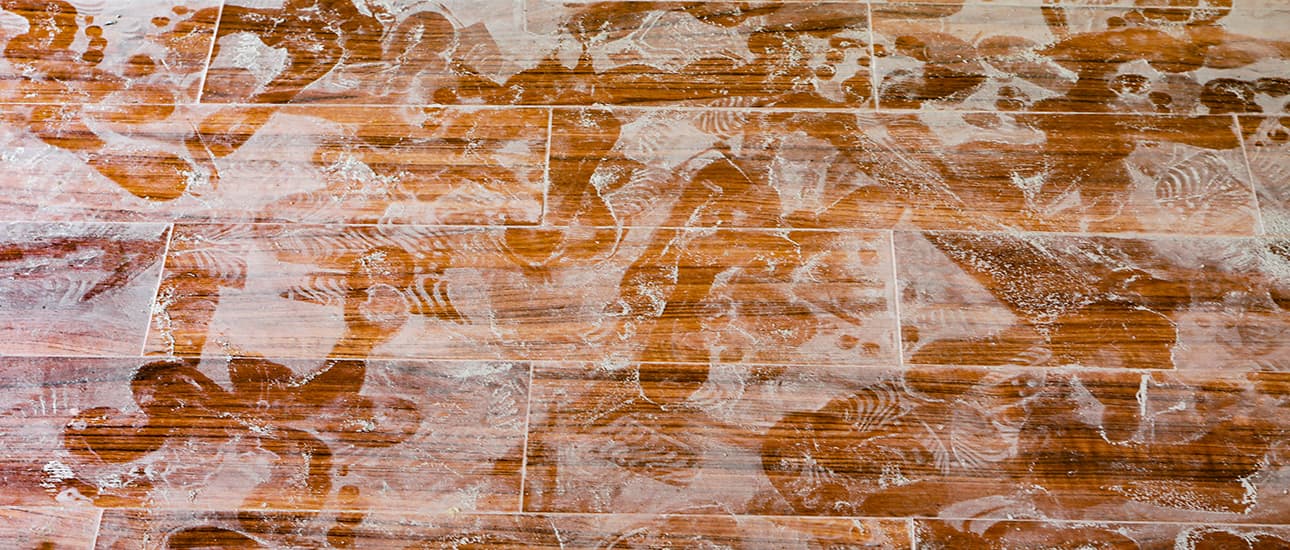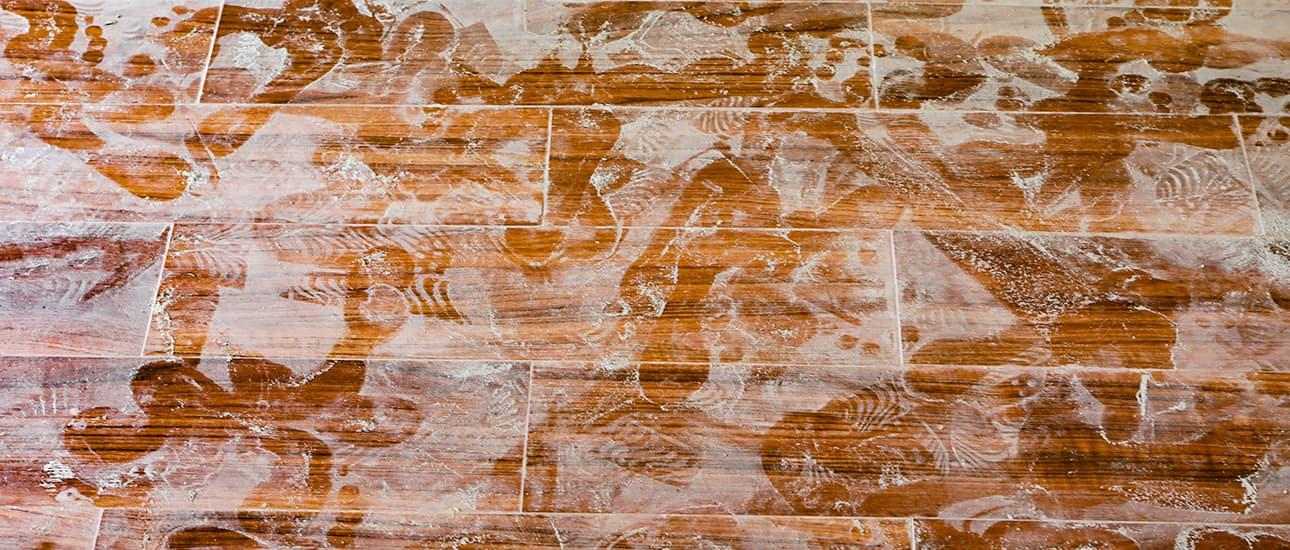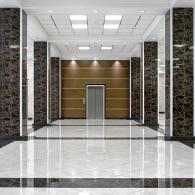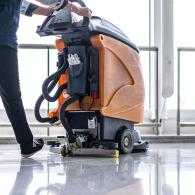The onset of winter brings increased foot traffic to a range of different facilities. Retail stores see rushes of customers buying holiday gifts for loved ones while hospitals tend to an influx of flu patients. During the winter, snow, salt and sand can make indoor floor care a challenge. Slick snow and slush can lead to slip-and-fall accidents; gritty salt and sand can damage a floor’s finish. If facilities don’t consistently and properly monitor and clean floors, appearance and brand image will be at risk.
Facility managers should, therefore, not wait to implement a strategy for winter floor care. They should work closely with their trusted building service contractor (BSC) to develop a plan of attack and research the best equipment and chemicals to tackle all the floor care demands winter brings.
Proper Preparation
Managers should avoid the complacent mindset that because their floor care program has worked in the summer and autumn, it will be effective through the winter. They should understand that whether they run a fitness facility, a school campus, a healthcare operation or any other facility, their floors will see both more traffic and more debris tracked in from outside during the winter.
Collaboration with expert BSCs is key. Make sure everyone is on the same page regarding budget restrictions and key floor-related needs of each particular facility. Develop a customized plan for the strategic placement of essentials like shoe-scraping and absorbent mats to reduce the debris tracked inside and limit the amount of snow melting on the floor. If possible, place 15 feet of matting at the entrance for maximum debris removal. Plan to consistently use a wet/dry vacuum to get rid of excess moisture on mats.
In addition, managers and BSCs should implement a schedule for frequently cleaning and buffing floors throughout the winter. They should train all staff to follow the schedule and use any new equipment brought in to enhance the facility’s floor-cleaning program.
Get Equipped
Choosing the right equipment and chemicals to take care of floors can save businesses time and money in the long run. It can also enhance a brand’s image if the chosen tools are environmentally sustainable. The following products can immediately improve a facility’s floor care program.
- Floor care machines: Look for equipment that is easy to use, durable and saves your operation time on labor by cleaning efficiently and effectively. Seek out versatile, flexible machines that fit the needs of your facility and allow for constant cleaning even while customers are present. Ideally, the machine or machines will be engineered to save water and reduce chemical and energy consumption – conserving resources while promoting sustainability.
- Superior scrubbing pads: Coupling the right floor care machine with high-quality pads is a move toward both cost-efficiency and increased floor cleanliness. There are innovative pads on the market that use billions of microscopic diamonds to clean and polish floors simultaneously, virtually eliminating the need for floor chemicals. This boosts indoor air quality by getting rid of toxins some cleaning chemicals emit, leading to a healthier indoor environment.
- Monitoring systems: Especially for businesses with large fleets of floor-care machines, it is immensely helpful for managers to remotely monitor each machine’s location and status. For example, if a battery is running low or a crash occurs, an intelligent monitoring system will notify the manager and allow a quick response to minimize machine downtime. Look for a solution that also sends periodic data reports that can drive managerial action.
- Waterborne finishes: Most schools use their basketball courts frequently, especially during winter – the heart of basketball season. Heavy use leads to inevitable scuffs and scratches that can make a gym less welcoming for visiting fans and players – especially when salt from outdoors gets trapped in the bottom of shoes and dragged inside. To combat this, start by keeping the soil outside with matting outside of the gymnasium. Use a winter floor cleaner designed to neutralize the pH of the salt residue and clean frequently to remove soils that contaminate the playing surface. Use a highly durable waterborne wood floor finish with superior scuff, scratch and chemical resistance. Look for products certified by GREENGUARD or other environmental groups to ensure clean air inside the school gymnasium.
Snow, slush, salt and sand persistently find their way indoors during the colder season, and managers need to be prepared with the most effective methods and tools at their disposal. By combining a carefully and collaboratively crafted floor-cleaning program with top-quality cleaning equipment, businesses can overcome the challenges of winter floor care. Successfully keeping floors clean through the winter can help keep customers returning.
Diversey offers a variety of machines, tools and chemicals to help you build a floor care program that fits your needs. For more information, visit www.diversey.com/solutions/floor-care or reach out here to contact us.





